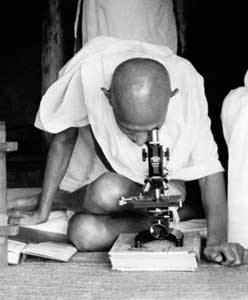variation on a theme: romance of long hours
written post-call after a long ICU shift, which after I wrote it I realize is a reworking of some things I've written before
I used to work at a public health job, working for the city, with good benefits, and time to go to the gym before going home to make myself dinner. When I started talking about becoming a doctor, a lot of people said that was nuts, most of all some doctors who looked back on their experience bitterly. Others were more encouraging, and I chose medicine.
I have no idea what my life would have been like if I hadn't chosen medicine; but what I usually tell people is that although I've sometimes been exhausted or miserable or depressed or discouraged, I've almost never been bored. I hated being bored at work. Now I'm not bored.
But aside from medical training being totally absorbing, part of the dirty little secret of long work hours is that it is part of a romance that doctors and patients have with each other. Many of my patients look at me sympathetically and ask whether I ever go home, and even shake their heads over my working conditions. But many of them also seem to sort of appreciate the romantic idea that I'm some sort of insanely dedicated nut who cares only about helping people and has no life other than worrying about their telemetry alarms. I'm there all night, yes; but I'm there for them.
On the flip side, as I'm complaining to my friends with regular jobs, I'm also a little proud of myself for making a different choice. I joined the few and the proud; my life is full of drama and a sense of importance. In the dark early morning hours in my academic hospital, the halls begin sputtering with the energy of people working really hard to become who they are going to become. That's kind of beautiful, and I am proud to be a part of it. And, though usually I would only tell my mom this, I'm proud of myself. I'm proud of myself for choosing something tough. This is a common impulse: it is the basic idea of most military recruiting pitches, and it has worked to convince people to do difficult or even insane things for many generations before this one.
When I worked in a regular job, I felt that my life lacked significance or importance somehow, even though I was doing important work. That was because I lacked this sense of drama.
The sense of drama that draws doctors to our training--even as the conditions that make our training dramatic also sometimes make us bitter or depressed--is probably in the end a fiendish tool of The Man to make us work harder for cheaper, and like it.
It's also part of how doctors become self-justifying later; other people can just suck up whatever hardship they face, because we did. (As if a few years of earning an average American wage and working insane hours in preparation for joining the top tier of wage-earners and gaining inestimable social prestige is really a form of enduring suffering.)
Change won't occur until the rest of the society stops appreciating the beauty and the drama of the dedication that the medical training process represents, and starts viewing residents as participants in a high-stakes industrial process that must eliminate systemic sources of error. But the latter view is much less romantic, and much less beautiful.
For almost everyone involved, it is more emotionally satisfying and less safe to romanticize the difficulty of medical training. Perhaps this is not surprising: in many other parts of life, emotional appeal often wins out over sensible decisions. But that appeal is part of why doctors choose this life; and I think that the romance of the doctor as a special breed of person is part of what seduces patients of academic hospitals into accepting a system that is not always designed in their best interest.





2 comments:
stumbled across this after a long MSI day...refreshing. thank you.
thanks for reading. good luck with MS1 and beyond.
Post a Comment